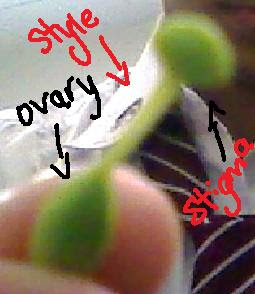Baby: The First Nine Months
1) When does the baby: (a) begin to move (b) open it eyes (c) begin to kick its mother so that she notices?
(a)The baby begins to move at 10 weeks (b) the baby begins to open its eyes at 26 weeks (c) the mother begins to feel the baby's kicks at 18 weeks
2) When is the baby: (a) as long as a finger nail (b) as long as your foot?
(a) The baby is about as long as your finger nail by two weeks (b) Babies are about as long as your foot by twelve weeks
3) Babies which are born early are kept warm in incubators. Why?
Babies premature need to be kept warm because there mechanism to maintain body temperature is still not functioning and they can't maintain proper body temperature, so they need an incubator
5) Try to find out: why girls should be given injections to prevent them from getting German measles.
Girls need to be given the injection before they reach puberty because if given during puberty it is not effective.
6.4 Growing Up: Non-Human Animals
1) Which two things do all growing embryos need?
All growing embryos need oxygen and food
2) How does: (a) frog embryo get the oxygen it needs? (b) a human embryo get the oxygen it needs?
(a) Frog embryos get their oxygen through the egg (b) A human embryo gets its oxygen through the blood pumped into its body through the umbilical cord
3) (a) What is the yolk's job in the egg? (b) As the chicken grows, the egg's yolk gets smaller. Why?
(a) The job of the yolk is to provide food for the growing embryo (b) The yolk gets smaller for two reasons; to make space for the chick, and because the chick has been feeding on it
4) Make lists of animals which grow: (a) inside their mother (b) inside eggs which the mother lays
(a) elephant - human - dog - cat - mouse - whale - dolphin - giraffe
(b) snake - sea turtle - sparrow - chickens - frogs - crocodile - ostrich - tuna
5) Which animals produce embryos that grow that grow into larvae?
Some animals include flies, beetles, frogs, cockroaches and butterflies
6) Try to find out: how lizard embryos grow
Tuesday, June 15, 2010
Friday, June 4, 2010
Dissection of a Flower
Today we dissected a flower to see if we could find and photograph the different parts of the reproductive system, as this would help us visualize and understand how this system worked.
 Here we see the female reproductive part, the pistil, and the different parts of it
Here we see the female reproductive part, the pistil, and the different parts of it Here we can see the inside of the ovary, although it it isn't very clear here, this is where the eggs should be
Here we can see the inside of the ovary, although it it isn't very clear here, this is where the eggs should be
Subscribe to:
Comments (Atom)

